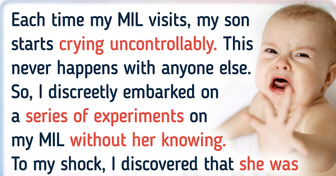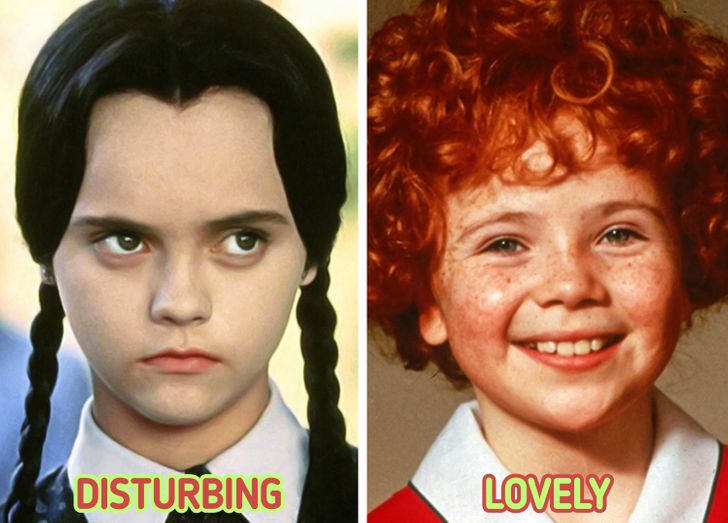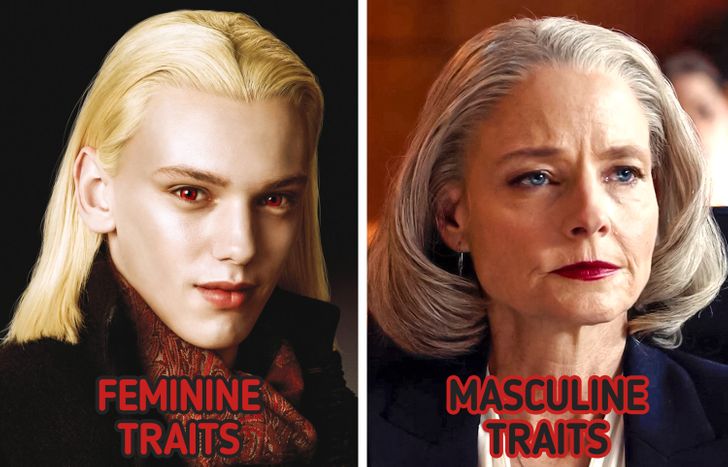my name means the name for the sun god Surya.
How Your Name Could Shape Your Personality and the Way Others See You
Warmth, protection, role models. From our earliest childhood, all these factors influence our personality — they shape it. We are in part what they made of us while we were children. Although there is something else that is perhaps little said, but which also determines our lives — something that our parents bestow on us from the day we are born. Our name.
At Bright Side, we set out to investigate the power of names and their ability to determine and even shape behavior. We wanted to know more and came across some truly amazing theories. Read this article to the end and be as surprised as we were.
How our names influence the way others look at us
Within each country, some names are considered to be common, and others that are or can become very rare depending on when you look at the stats. There are also others that, for various reasons, we tend to associate with positive or negative meanings and others that sound attractive, exotic, modern, or, on the contrary, old-fashioned. It could make sense to think that maybe these attributes that our names carry influence how others treat us and how we perceive ourselves on some level.
If you’ve wondered about this, you might not be the first. In fact, several studies have been carried out to determine how the choice of a name can shape a person’s life. The conclusions of each of these studies arrive in more or less the same direction. Yes, the choice of a name can have consequences in our lives, both positive and negative. Suddenly, choosing a name isn’t just a matter of aesthetics anymore.
It is often said, for example, that names with more “ringing” sounds, such as Owen or Lauren, tend to be associated with emotional and friendly people more often than those that include occlusive or deaf letters, such as Jack or Katie. This might be because the latter have short and more abrupt sounds and they could be associated with extroverted, witty, and lively people on some level of our consciousness.
This very special relationship between someone’s character and their way of being with a name. This is very clearly reflected in fiction when it comes to naming the main characters. There’s even a branch of etymology that studies names, called onomastics.
And just like in books, evil characters have names that sound evil too. In real life, names that people find “weird”, unpopular, or that come with negative connotations can actually have a negative impact on the self-esteem of the person who has to be called that for the rest of their life. This is mainly because of 2 separate reasons, that at some point merge to create the perfect storm. On the one hand, our own ego can feel hurt because we do not like the name or what it represents for us. On the other hand, other people might not like it. And most people will find a way to let you know this, which isn’t great — sometimes it can even be both.
As it very often happens in other things, names can also awaken prejudices. These can have a social, cultural, and even linguistic origin. That’s how many people come to the conclusion that a person who has a more “ringing” name, which is often pronounced with more fluency than other names, is a pleasant person. On the other hand, people who have longer and more “abrupt” names are more likely to be judged as a loner by those in their environment.
Other studies seem to stress this idea even more by suggesting that children with rare or unusual names will be more likely to suffer from some emotional disorders than children with common names. Is it a coincidence that the names chosen to represent 2 famous girls from movies and TV were “Wednesday,” from The Addams Family, and “Annie,” from Annie? The disturbing little girl with braids and the empathetic and adorable Annie are just some of the most revealing examples behind this theory.
But if you’re one of the people that bears an unusual name, don’t worry, it’s not all bad news for you. In fact, there are also some very positive points to having a name that is original and unique. Other research has proven that while a common name can help a child become more accepted by others in the short term, someone with a name that is considered exotic, strange, or unusual can convey a sense of uniqueness. By doing so, it can shape a personality that is in line with an exceptional character, which could turn out to be a very valuable trait depending on how it’s managed.
Creativity, open-mindedness, unusual career paths, and successful business strategies are just some of the main characteristics that many scientific studies have managed to relate to people who have been chosen to bear an unusual name throughout their lives.
“Round” and “pointy” names
The fact that we associate a name with a face, and even with a certain personality, is not just dependent on fashion, on what is common or out of the ordinary in the society that we belong to. It is also related to something that could be understood as purely linguistic. For example, we’re thinking about the sound of the letters and how we combine them to make sense of them. Research has shown that people tend to make judgments based solely on the way the set of letters that make up a name sound.
Studies suggest that our brains tend to link specific sounds with geometric shapes. For instance, the sound of the letters “b,” “m,” “l,” and “o” are more often perceived as being round. On the other hand, the sound of letters like “k,” “t,” “v,” and “i” are often interpreted as being pointy.
We have a tendency to transfer the properties we hear in people’s names to their character. This can be the softness or the pointiness we described earlier. Based on that we will preconceive an image of the person. For example, a “soft” name is associated with someone pleasant, emotional, responsible, and somewhat vulnerable. On the other hand, we may attribute someone’s “tough” or “sharp” name to them being a strong, outgoing, and bold personality.
Does this theory confirm that Bella is vulnerable and Victoria is evil in Twilight? Not really, but it does show how we have a predisposition to think that. What’s more, if we only saw the angelic face of Meg Ryan and the intense gaze of Kim Kardashian, would anyone doubt who is named one way and who, the other?
Gender-neutral names
Robin, Jesse, James, Jamie, Jodie, Alex, Brennan, Charlie, Cameron, or Leighton are all gender-neutral names. That means they can be used for one gender or the other depending on the country and time when they’re used. And here again, stereotypes, cultural norms, beliefs, and our own prejudices come into play to give a character to the name and the person bearing it.
Several studies that have been carried out in this regard reveal that men with androgynous names are often thought of as having less masculine personalities and characteristics in general. On the other hand, the exact opposite conclusion has been found to be true for women. Scholars have gone a step further and hypothesize that women with gender-neutral names are more likely to succeed in the workplace and that children with gender-neutral names could actually have a harder time when it comes to integrating socially into school or new circles.
All of these conclusions do not mean that only a name will determine the lifestyle of a person. However, it does speak about how our own prejudices can sometimes attribute certain characteristics to the bearer of one name over others, regardless of whether these characteristics actually coincide with the personality or physical appearance of the person. This is especially relevant since we might not even be aware that it is happening.
Things that happen in books and other types of fiction are clear examples of this. Names are chosen for a character with certain qualities because it is believed that the name speaks of those qualities. Then, if the series or the book turns out to be successful, people will replicate (and even confirm) these behaviors.
If you had to pick a name for a competitive and very extroverted woman, what name would you choose? What if you were thinking of a romantic and sensitive man? Tell us your thoughts!
Comments
I have "m" in my name and indeed, people think I'm a soft and emotional person
idk what pointy means here, but I think it's being bossy or managing people
I guess I am like that 😂
Related Reads
17 Creative Brides That Don’t Need a Standard Wedding Dress to Look Gorgeous

15 People Who Were Caught in Awkward Situations
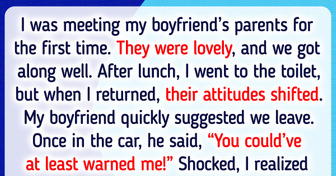
14 Startling Stories From Shop Assistants That Astonished Them to the Core

Fathers of Girls May Live Longer, Study Finds

We Changed 15+ Celebrities So Their Faces Fit the Golden Ratio, and Now We Know That Beauty Doesn’t Have to Be Perfect

My Fiancé Wants His Mom to Own the House We Bought Together, I’m Raging
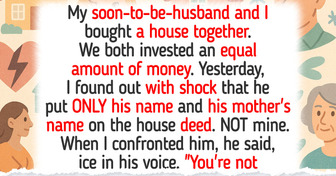
12 People Whose Jobs Have More Twists Than a Reality Show

I Kicked My Stepsister Out of My Wedding—But Didn’t See the Twist Coming
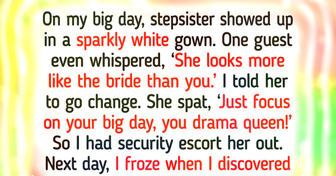
I Left My Wife on Our Wedding Night Because of Her Sick Surprise
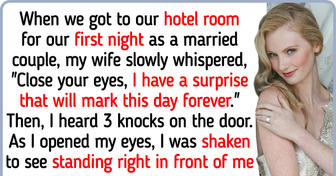
16 People Shared Stories That They Keep Secret Even From Their Family

10+ True Stories About the Most Disgusting Things People Witnessed
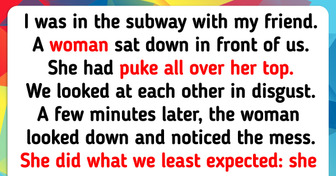
My Baby Cries Hysterically Every Time My Mother-in-Law Is Around — I Finally Discovered Why
